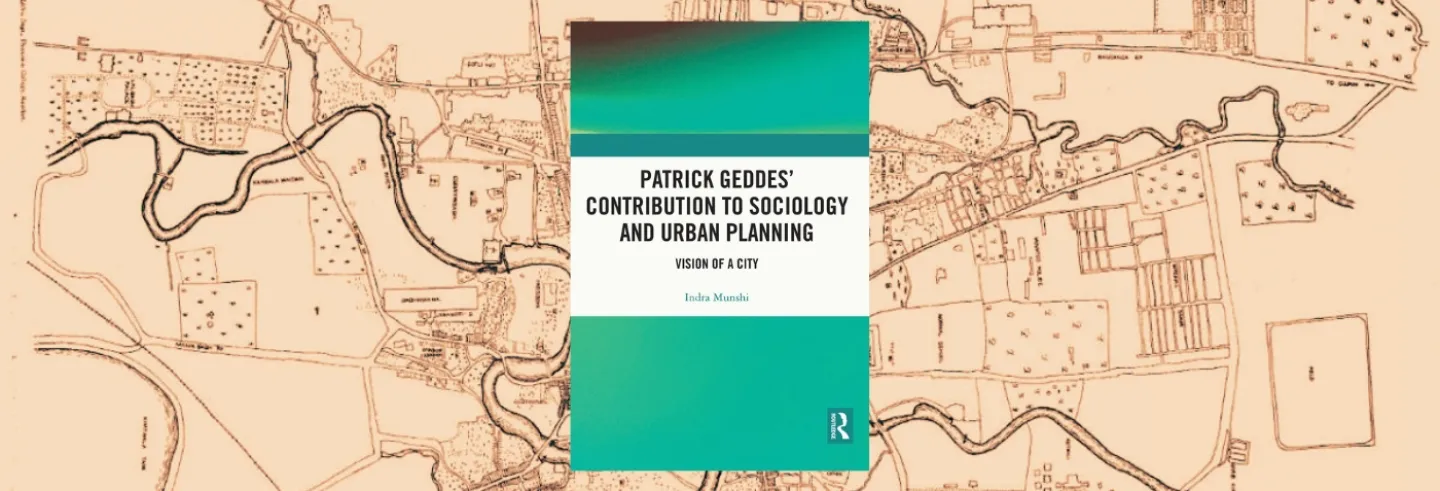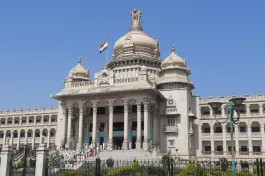Patrick Geddes (1854–1932) was once a celebrated messiah of “humanist” urban development and influential social reformer, described by biographers as a “practical genius, bold and ambitious, a precise observer and of penetrating insight” (Slater 1932).
He is considered a father figure both in the academic discipline of sociology and in the profession of urban planning in the United Kingdom. Geddes played a seminal role in the establishment of the disciplines of sociology and urban planning in India, and, in 1919, founded the Department of Sociology at Mumbai University. During his several extended stays in India, he prepared nearly 50 town planning reports for Indian cities that proposed their renewal, which are widely regarded as important contributions to the disciplinary discourse.
Today, however, his innovative ideas elicit little more than a passing reference in academic dissertations. The reasons for the erasure of his relevance have seldom been critically examined though loyal Geddesian scholars continue to fan the embers of his now elusive ideas, which departed quite significantly from the disciplinary axioms of his day.
Geddes believed that social processes and spatial forms are intimately linked, and that citizens need to become agents in the transformation of their habitat. He promoted his ideas tirelessly through his writings, lectures, and visionary exhibitions that aimed to acquaint the public with urban issues.
Munshi has been closely associated with prominent environmental and urban planning activists in Mumbai, and, like Geddes, her book engages with both the theoretical and practitioner’s perspective of Indian urbanism.
After he passed away, his acolytes have assiduously propagated his eclectic legacy by publishing several well-regarded biographies, elevating his reputation to a mythical stature. The book under review by Indra Munshi focuses on Geddes’ works in India, “with a view to underline (its) relevance … contemporary urban concerns and issues”.
Munshi, a former head of the department of sociology at Mumbai University, is in a direct line of intellectual descent from Geddes himself. She has also been closely associated with prominent environmental and urban planning activists in Mumbai, and, like Geddes, her book engages with both the theoretical and practitioner’s perspective of Indian urbanism.
Her purpose, she says, is “to focus on his sociological ideas of urbanisation and environment … connected with his vision and plan for building healthier and more beautiful cities, from both ecological and social and cultural perspectives”. The book fulfils her objectives, and the substance of this review is not to examine her familiarity with the subject or its purpose, but to consider the possible reasons why Geddes’ ideas have become so moribund that they find no traction in resolving the contemporary social and urban problems that Munshi discusses.
What is remarkable about Geddes’ town planning reports is that he addressed the problems of Indian urbanism by understanding the local cultural and environmental context rather than by following the colonial practice of viewing the Indian city through the lens of town planning principles and norms developed to resolve the problems of British towns. His ideas did not take root and a different story has unfolded in the subsequent narrative of urban planning and the development of sociology in India.
But, as Munshi points out, the relevance of his ideas continues to haunt the periphery of official discourse because the social and ethical integrity of his humanist vision of urban society and ecology offers a compelling antidote to the complex problems of contemporary Indian urbanism.
The book provides an overarching survey of his intellectual and practical achievements by focusing on three themes. First, Munshi situates Geddes in the intellectual milieu of his times by “illuminating Geddes’ work both through his own history, not least his deep commitment to India, but also through the current significance of his sociological and environmental vision, a century after he was himself working”. For a contemporary scholar embarking on studying Geddes’ achievements, this provides a succinct but comprehensive introduction to begin the journey.
In the final chapter … Munshi brings up her third theme—the rationale underpinning her book. Here she refers to several contemporary urban problems in India, which are fast reaching crisis proportions.
Second, Munshi discusses his engagement with Indian urbanism, which she says were the most creative years of his life. She focuses on Geddes’ ideas of urban renewal, some of which he drew from his knowledge of biology—he was earlier Professor of Botany at University College Dundee—which helped in formulating some well-known catechisms in Geddesian ideology, like, for instance, “ diagnosis before treatment” and “conservative surgery”. She also discusses his iconic Indore report in detail and describes his deep commitment to the preservation of the natural and cultural heritage of Indian cities with detailed discussions on how tanks, wells, nullahs, rivers, and ponds can be restored, maintained, and revived—something that is particularly relevant to mitigate the problems of contemporary urban development.
In the final chapter, titled “Urban Ecological Crisis and Citizen’s Initiatives: Remembering Geddes”. Munshi brings up her third theme—the rationale underpinning her book. Here she refers to several contemporary urban problems in India, which are fast reaching crisis proportions. While her main focus is Mumbai, she also refers to the problems of other cities, which throws light on the complexity of understanding and dealing with India’s urban problems. In each context, she reiterates the need to follow the strategies proposed by Geddes but rues the fact that they are not being followed.
This highlights a central dilemma—the intellectual contributions made by Geddes have not evolved with the times. Like other Geddesian scholars, Munshi makes a strong, and convincing, case for adopting the “Geddesian approach” to engage with contemporary urban problems but does not answer the question of how is this to be accomplished. Those who seriously engage with Geddes’ ideas inevitably become believers but decision-makers responsible for civic governance invariably look elsewhere for solutions. This is a faultline in the translation of his urban planning ideology that Geddesian scholars need to examine.
To turn the gaze of civic authorities towards the ethical, environmentally sensible, and humanistic ideals propagated by Geddes, modern scholars will need to examine them more critically and reformulate them in terms of their contemporary relevance. Most intellectual biographies of Geddes have been described as “ranging in tone from bare-faced worship to enthusiastic respect” (Mercer 1997), celebrating his life and achievements by relying heavily on previous writings. This book is similar, notwithstanding its laudatory attempts to find an affinity with contemporary urban problems in India.
The gap between having an urban planning strategy to fulfil the spatial needs of our modernising society as a whole and seeing urban development as a spectacle to benefit the few is increasing.
The need to re-invent Geddes is becoming more urgent as contemporary strategies of urban planning are proving to be ineffective. The gap between having an urban planning strategy to fulfil the spatial needs of our modernising society as a whole and seeing urban development as a spectacle to benefit the few is increasing. At the turn of the last century, Geddes, with great insight, foresaw these propensities in the urban transformations taking place in his society and worked towards mitigating their consequences.
The model of modernisation that is currently being followed in India is based on neoliberal economic policies and a heavy dependence on advanced technologies, which in urban planning translates into idealising western modernity. As Munshi rightfully points out, we need to re-imagine India’s urban future by paying heed to the model that Geddes propagated—taking the social and cultural characteristics of society and an understanding of local environmental ecology into account to create a context-specific urban development. These parameters would then define the characteristics of modern indigenous urbanism.
Geddes had great hopes that his message would be more readily accepted in India because Indian society had “not lost its moral and spiritual character” but, as Munshi points out, till recently, even in the department of sociology in the University of Bombay, “Geddes was not even part of the curriculum for the Masters course on urban sociology.”
One reason why Geddesian ideas have lost their relevance is not that they have become irrelevant, but that scholars have not engaged with them critically in their afterlife. One would have expected local scholars to have undertaken such research, but, as Munshi laments, this is conspicuous by its absence.
In other parts of the world, some scholars are beginning to address this imperative by examining Geddesian ideas through other disciplinary lenses, though this book does not acquaint us with these initiatives. Scholars such as Noah Hysler-Rubin, for instance, are exploring hidden narratives of the colonial “civilizing mission” in their town planning reports. In this way, Hysler-Rubin offers a rounded analysis of Geddes’ vision and its material manifestation, thus functioning as a much-needed critical tool to evaluate modern urban planning itself as an academic and practical discipline (2011). Munshi’s book offers a good starting point to pursue such a mission in India.
A. G. Krishna Menon is an architect and urban planner and an admirer of Patrick Geddes.









